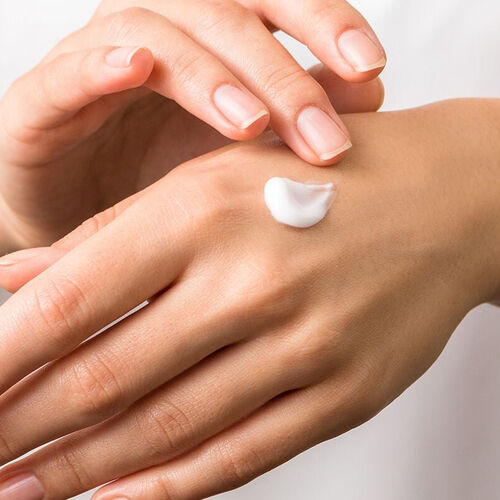
How to Repair Your Skin Barrier? - Tips For Restoring Your Skin
Your skin barrier is your first line of defense against environmental stressors, pollutants, and harmful microorganisms. It's essential to keep it intact to maintain healthy skin. However, many of us unknowingly damage this protective barrier, leading to skin problems like dryness, sensitivity, and irritation. The good news is that you can repair your skin barrier by following some simple steps and incorporating the right skincare products. Let’s understand how to repair the skin barrier and restore its health.

What is a Skin Barrier?
The skin barrier, also known as the stratum corneum, is the outermost layer of your skin. It comprises skin cells (corneocytes) and lipids (fatty acids, cholesterol, and ceramides) that act as a protective shield. This layer locks in moisture, keeping your skin hydrated while preventing harmful substances like bacteria, pollutants, and irritants from penetrating the skin. A strong and healthy skin barrier ensures your skin remains soft, supple, and healthy.
Why Does the Skin Barrier Matter?
The skin barrier is critical for your overall skin health. When the barrier functions properly, your skin looks radiant, feels smooth, and stays hydrated. However, if it's compromised, you may notice signs like redness, itching, dryness, and sensitivity. This damage can also lead to issues such as acne, eczema, and premature aging. By keeping your skin barrier healthy, you can protect your skin from these problems and maintain its youthful appearance.
What Damages Your Skin Barrier?
Several factors can weaken your skin barrier and cause it to become damaged. Understanding these triggers can help you take proper precautions and keep your skin in good condition:
Harsh skincare products
- Alcohol: Many skincare products, especially toners, contain alcohol, which can overdry or irritate your skin by stripping away the natural oils.
- Strong Fragrances: Fragrances can irritate sensitive skin and contribute to barrier damage.
- Sulfates: Harsh surfactants are often found in cleansers and can disrupt the skin's natural balance.
Over-exfoliation
Excessive exfoliation can remove too many dead skin cells, leaving your skin vulnerable to damage and irritation. When you exfoliate too often or use harsh exfoliants, you can strip away the skin's natural protective barrier, increasing your susceptibility to dryness, redness, and sensitivity.
UV exposure
Sun damage from UV rays is a major cause of skin barrier damage, leading to dryness, wrinkles, and premature aging. UV rays can break down the collagen and elastin in the skin, weakening the skin barrier and making it more susceptible to damage. They can also inflame the skin and cause oxidative stress, further damaging the skin barrier.
Pollution
Environmental pollutants like dust, smoke, and chemicals can irritate your skin and contribute to barrier damage. Pollutants can infiltrate the skin and cause inflammation, oxidative stress, and premature aging. They can also disrupt the skin's natural repairing functions, eventually leading to dryness, irritation, and other skin problems.
Stress and lack of sleep
Emotional stress and inadequate sleep can disrupt your skin's natural repair process and weaken the barrier. Stress can cause hormonal imbalances, leading to inflammation, increased oil production, and other skin problems. Lack of sleep can also disrupt the skin's repair process, making it more susceptible to damage.
How to Repair and Restore Skin Barrier?
Repairing your skin barrier requires a thoughtful approach that includes tweaking your skincare routine, using products to repair your skin barrier, and making lifestyle changes. Here’s how you can effectively repair the skin barrier:
Check Your Skin Routine
A personalized daily skincare routine is vital for maintaining the health of your skin barrier. If you’re using harsh products, consider replacing them with gentle, dermatologist-recommended alternatives, especially if you have sensitive skin. Opt for mild cleansers like Cetaphil Gentle Skin Cleanser to remove impurities from your skin without stripping its natural oils. Cetaphil is known for its gentle formula, which is suitable for all skin types, including sensitive skin.
Add Barrier-Repairing Ingredients to Your Routine
Certain ingredients are known to help strengthen and repair the skin barrier. Products containing ceramides, hyaluronic acid, niacinamide, and glycerin are excellent for restoring barrier function. For example, Cetaphil's Brightening Night Comfort Cream contains niacinamide, a key ingredient that not only hydrates the skin but also reduces sensitivity. Niacinamide helps to regulate oil production, improve uneven skin tone, and strengthen the skin barrier. It's particularly beneficial for those with sensitive or acne-prone skin.
Live a Balanced Lifestyle
Your skin directly reflects your overall health, so make sure you follow a balanced lifestyle. Drink sufficient water to flush out toxins, follow a healthy diet rich in essential vitamins and antioxidants, and manage stress to give your skin the best chance to heal and maintain its barrier function.
Stay Away from Artificial Fragrances
Fragrances in skin care can irritate sensitive skin and further damage the skin barrier. Choose fragrance-free products, like Cetaphil's Gentle Skin Cleanser, a mild, non-irritating cleanser ideal for sensitive skin. This cleanser gently removes dirt, oil, and pollutants without overdrying the skin, leaving it clean, soft, and hydrated.
Look for Formulations that Include Ceramides
Ceramides are essential in restoring the skin barrier, as they help to lock in moisture and keep harmful elements out. Products rich in ceramides, like Cetaphil Restoraderm Skin Restoring Body Moisturizer, can help repair the skin barrier effectively by replenishing the skin's natural lipids.
Try Moisturizers Containing Hyaluronic Acid or Glycerin
Both hyaluronic acid and glycerin are excellent humectants that draw moisture into the skin and help retain it, boosting your skin barrier's function. Using moisturizers containing these ingredients will help repair the skin barrier by improving hydration. Cetaphil’s Daily Advance Ultra Hydrating Lotion contains glycerin and is excellent for hydrating dry skin. Glycerin is a natural humectant that can make your skin soft and supple by attracting and retaining moisture.
How to Fix a Damaged Skin Barrier?
If you’ve noticed signs of a damaged skin barrier, it’s essential to act quickly to prevent further issues. Follow a few healthy habits and choose the right ingredients to repair your skin barrier. Here’s how you can repair the skin barrier and get back to healthy skin:
- Avoid harsh cleansers and exfoliants: Stick to gentle, pH-balanced cleansers like Cetaphil’s Gentle Skin Cleanser, and avoid scrubs and physical exfoliants while your skin heals.
- Use a rich moisturizer: Opt for a thick, ceramide-rich moisturizer like Cetaphil’s Moisturising Cream, which helps restore the skin barrier and keep it moisturized. Apply it twice daily for best results.
- Incorporate a niacinamide serum: Niacinamide is a powerful ingredient that repairs skin barriers. It also helps reduce inflammation and improve hydration. Cetaphil Bright Healthy Radiance Brightening Day Protection Cream SPF15 contains niacinamide and works well for sensitive skin.
- Protect your skin from the sun: UV rays can worsen a damaged skin barrier, so always wear sunscreen from a reputed brand along with barrier-protecting products. Cetaphil’s Sun SPF 30+ is a great option for those with sensitive skin.
- Avoid fragrance and alcohol-based products: As mentioned earlier, these can irritate the skin and worsen skin barrier damage, so avoid them completely.
Conclusion
Your skin barrier is vital for maintaining healthy skin, and taking care of it should be a priority in your skincare routine. By using the right products and following healthy skincare habits, you can repair your skin barrier and keep it functioning at its best. Shop our wide range of skincare products rich in barrier-repairing ingredients like ceramides, hyaluronic acid, and niacinamide to bring your skin back to its natural, healthy state.
Frequently Asked Questions (FAQs)
How long does it take for the skin barrier to repair?
The time it takes to repair your skin barrier usually depends on the severity of the damage and how well you care for your skin. Generally, the skin barrier can take two weeks to even a month to completely recover and heal. Protect your skin from the sun and consistently use the right ingredients to repair your skin effectively within a short time.
How can you maintain the skin barrier?
For a healthy skin barrier, you should incorporate gentle skincare products that don’t strip the skin’s natural oils. Apply a good moisturizer, wear sunscreen daily, avoid over-exfoliating, and stick to a balanced lifestyle that includes proper hydration, sleep, and stress management.
How do I tell if my skin barrier is damaged?
Common indications of a damaged skin barrier include dryness, flakiness, irritation, redness, and increased sensitivity. If your skin seems tight, irritated, or itchy after cleansing, or you are experiencing breakouts and inflammation, it may indicate barrier damage.
Can niacinamide repair skin barriers?
Yes, niacinamide is an effective ingredient for repairing and strengthening the skin barrier. It helps improve skin elasticity, enhances hydration, and reduces redness and inflammation. Products like Cetaphil Bright Healthy Radiance Brightening Day Protection Cream SPF15 contain niacinamide and are great for sensitive skin.











.jpg?sw=450&sh=450&sm=fit&q=85)

